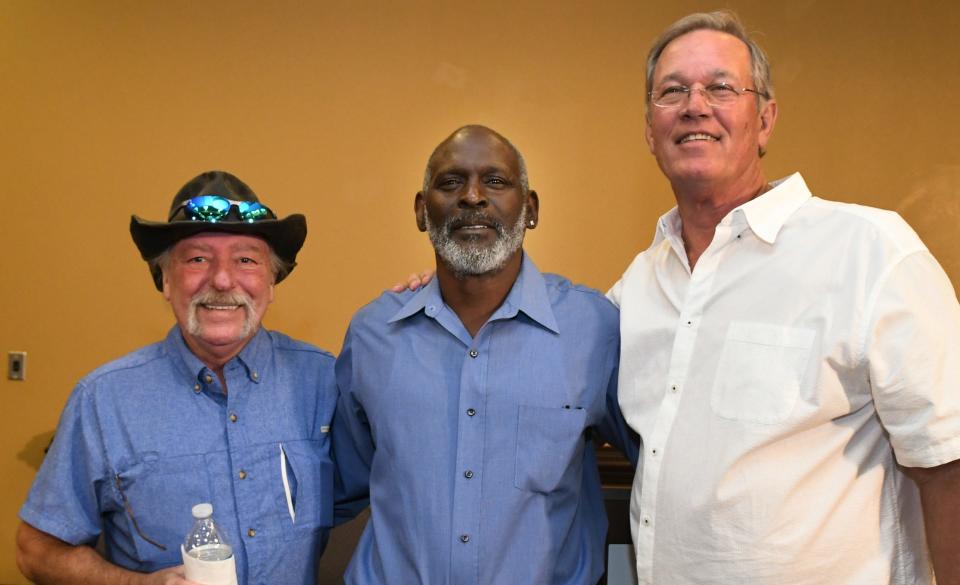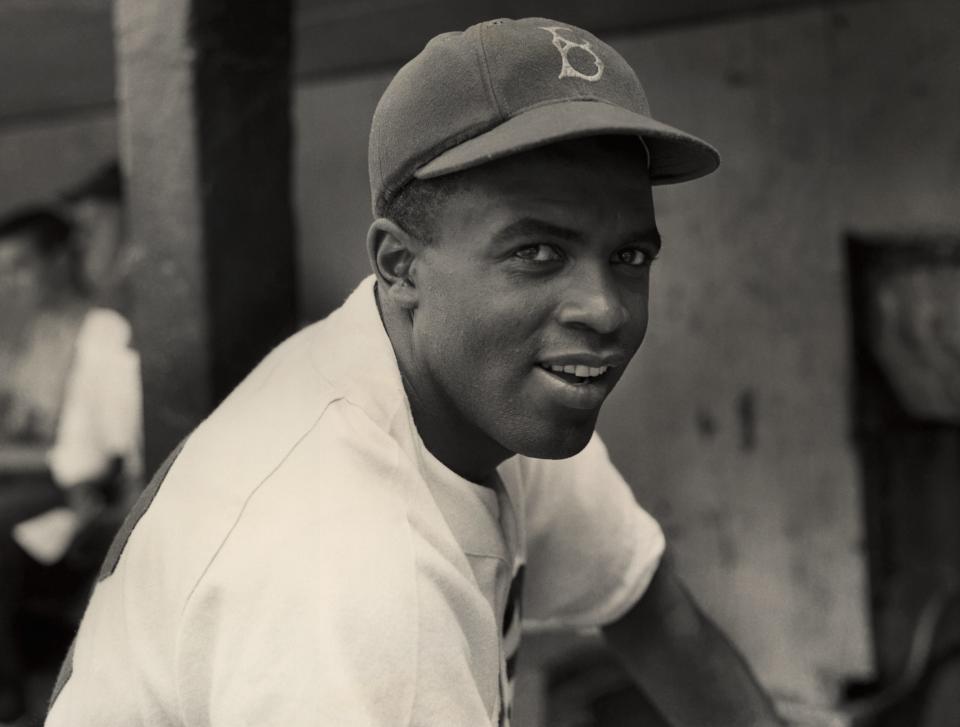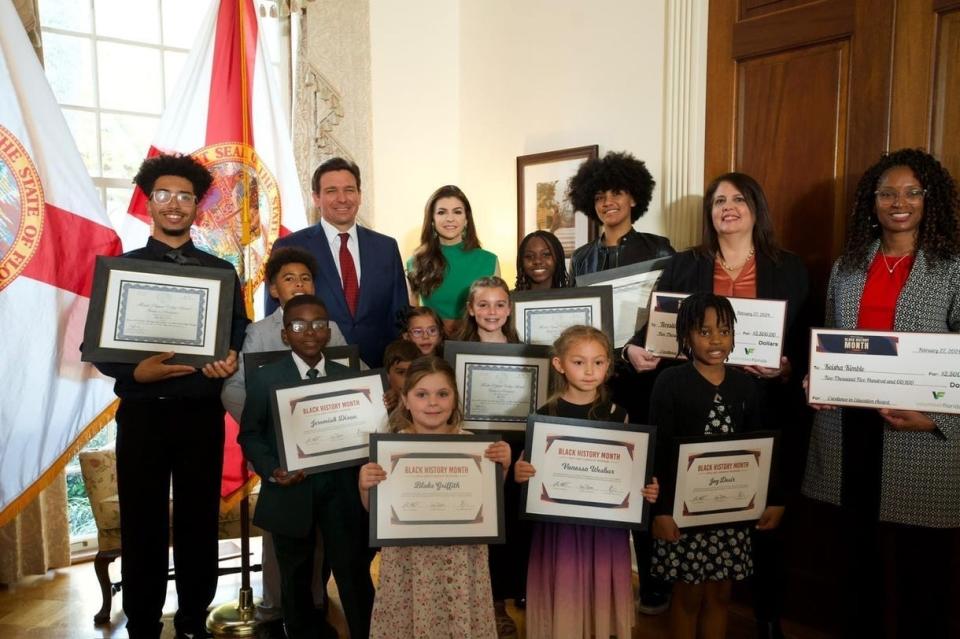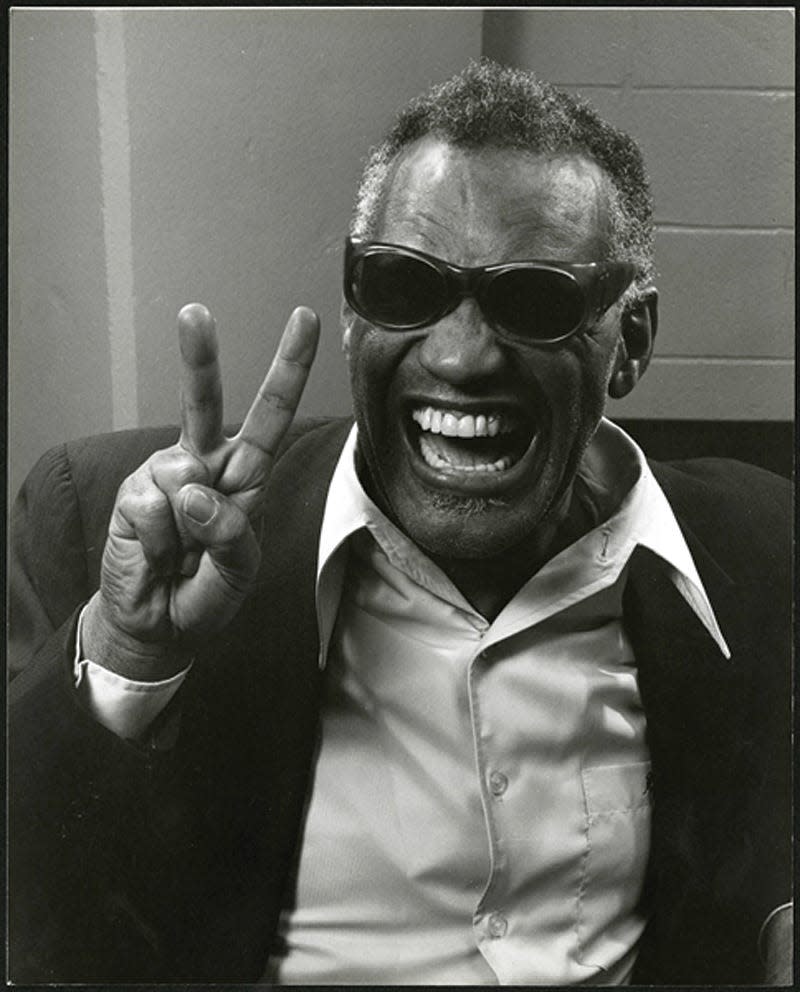Torres: So, who are your heroes? | Opinion
- Oops!Something went wrong.Please try again later.
- Oops!Something went wrong.Please try again later.
When I was a kid I threw the word "hero" around a lot. I had sports "heroes," music "heroes," acting "heroes."
And then there were real-life heroes, like Mother Theresa or Martin Luther King Jr. or Ghandi.
But as I got older, I learned about the flaws in the people I had put on pedestals. They became less important. Plus, that Gordon Lightfoot song messed with me. You know the one, where he sings "When you reach the part where the heartaches come, the hero would be me. But heroes often fail."
That stayed with me for a long time, but only because I didn't understand the true nature of heroism. Heroism doesn't mean perfection, never having doubts or never making mistakes. It's our response to the failing or letdown that allows heroes to rise.
More from Torres: Torres: Melbourne should take over Wickham Park | Opinion
Torres: Remembering Marshall Frank, detective, author, musician and all-around great guy
Truth is heroes are all around us. But we're too busy looking in the wrong places for them. Maybe it's because they are normally everyday ordinary people who just do heroic things, like my family friend Manny Mojica who, like many of his fellow NYC firefighters, ran up into the Twin Towers as everyone was running out. He didn't survive.
Scientists and researchers are still trying to figure out what makes a hero. Neuroeconomist Paul Zak theorizes that heroes show more love and empathy, possibly due to higher levels of oxytocin. But we don't need to know the science behind what makes a hero. We can identify heroism when we see it.

I can think of a few of my local personal heroes right off the bat. These men have had to overcome near impossible odds to survive and some are still locked in that battle. Yep, I'm talking about William Dillon and Wilton Dedge, who were bamboozled with made-up evidence and lying jailhouse "witnesses" and who each spent more than 20 years in prison for crimes they did not commit. DNA evidence proved once and for all their innocence. And yet, these men today don't have a bitter bone in their bodies. Instead they are thankful and enjoying life to the fullest.
But some of my other heroes haven't been so "lucky."
Of course, I'm talking about people like Crosley Green, who as just made to return to prison last year after the appellate courts overturned a federal court's ruling that his constitutional rights were violated. It's pretty clear to me, and others, that Green did not commit the murder he's serving a sentence for. Yet, Crosley remains a man of faith, confident that justice will eventually prevail and he will once again taste freedom. Others, like Gary Bennett and Jeff Abramowski remain in prison with similarly troubling convictions.
So, why am I writing about heroism? Because late last month, Gov. Ron DeSantis opened up the governor's mansion to honor six students for their winning essays celebrating black history month. Two of those winners are Brevard County siblings: 10th-grader Joseph Gordon II and fifth-grader Jeremiah Gordon who are both home-schooled. The topic of the essay was “Celebrating Florida’s African American Heroes and Their Contribution to Freedom.”
What Books Moved Me: Piecing together Black History: A reading list of books to awaken your spirit
The winners received a two-year Florida College Plan scholarship provided by the Florida Prepaid College Foundation and a $100 gift card for school supplies. I wanted to showcase their work here and to maybe get you thinking about your heroes.
It's important.
Psychology Today lists several reasons why we need heroes. Heroes, the piece goes on to say, give us hope, healing, positive energy, meaning, purpose and more.
These people are all around us.
Here are the winning essays:
Jackie Robinson broke color barriers in Florida by 5th-grader Jeremiah Gordon
Have you ever heard about a man named Jackie Robinson?
The great Dr.Martin Luther King Jr. said, “He was a sit-inner before sit-ins, a freedom rider before freedom rides (Bertha).” This quote shows that Dr. King respected Robinson's heroic achievements. Jack Roosevelt Robinson, an African-American man, was born on January 31, 1919, in Cairo, Georgia. Later in his life, he became a protagonist for the rights of African Americans to play in Major League Baseball (MLB). Robinson and his family moved to Florida to fight for this freedom. He made a difference by overcoming trials, being the first black player in the MLB, and working for societal change during the civil rights movement.

Robinson overcame numerous trials to achieve his goals. Believe it or not, in high school he played football, basketball, and baseball (of course). In college, he played baseball at UCLA. Due to financial troubles, he had to leave UCLA and travel to Hawaii to play football for the Honolulu Bears. Then, in 1942, he was sent to the army. After his service, he joined the Negro Baseball League. However, Branch Rickey (President of the Brooklyn Dodgers in the MLB) wanted to integrate baseball, so he asked Robinson to join his team (R, Victoria). This is the moment Robinson had been waiting for. His determination and courage paid off.
Robinson broke many color barriers in his baseball career. He played for Rickey’s minor (Montreal Royals) and major (Brooklyn Dodgers) league teams when most teams were segregated (clubs were separated by the skin color). Two places in Florida (Sanford and Deland) threatened and kicked Robinson out because of his race. Thankfully, in Daytona Beach, Fl, color barriers were being broken. An African American woman, named Mary McLeod Bethune, opened the Historically Black College called Bethune-Cookman College in the city. This created the opportunity for Robinson to continue his spring training. He became the first African American to play in a minor league baseball game in Daytona, in 1946 (Robinson and Clinton). On April 15, 1947, Robinson broke a 60 year old color barrier by being the first black man to play in an MLB game with the Brooklyn Dodgers. His courageous acts opened the doors for other black players to play professional baseball (University of Denver).

Robinson also worked for societal change during the Civil Rights Movement. He joined Dr. King in rallies, events, and fundraisers. Before he died, Dr. King said, “You’ll never know how easy you and Jackie and Doby and Campy made it for me to do my job by what you did on the baseball field (Cardon).” Robinson fought for equal rights for all. He not only played baseball for fun, but he played to make a difference in the world.
In conclusion, Robinson was a hero that contributed to freedom in Florida. In his honor, a stadium in Daytona Beach was renamed The Jackie Robinson Memorial Ballpark (Civicplus). He was a bigger hero than any of my favorite Marvel Avengers.
Ray Charles: A Florida Hero by 10-grader Joseph Gordon II
Can you picture yourself being blind but still wishing to pursue your dreams? A courageous African American hero named Ray Charles Robinson (aka Ray Charles) overcame this challenge. He said, "Just because you can't see anything, doesn't mean you should shut your eyes.” Charles was born on September 23, 1930, in Albany, Georgia, and soon moved to Greenville, Florida (Biography.com Editors). Florida was the starting point of his music career. Charles was a pioneer for the freedom of African Americans because of his tenacity to prevail despite his disability, through his music, and his efforts towards breaking color barriers in the music industry.
More from Torres: Torres: No tears shed for death of rapist, murderer Clarence Zacke
A sex trafficking victim nearly died trying to get out. How she turned her life around
Charles had many walls blocking him, but even though they were tall, he still climbed over. Some of these walls include living with the burden of seeing his brother drown at a young age and soon after losing his sight at the age of 7. Charles’ devoted mother taught him to complete daily tasks for himself (to discipline him to live an independent life despite being blind). She was able to receive help, for her son, from the Florida School for the Deaf and the Blind in St. Augustine, Florida. This school taught Charles how to read and write using Braille, play musical instruments, and arrange and read music (Biography.com Editors). These great feats opened up the doors to music for Charles.
Did you know that during the Civil Rights Movement, Charles’ song “Georgia on My Mind” was an anthem for the cause, and helped fund some of the organized events run by Dr. Martin Luther King Jr? Charles also had many protest songs, such as “You’re in for a Big Surprise (Jones).” He created a new genre of music that was pivotal in the historical period of inequality. His voice, piano playing, and a blend of church and blues music made people feel comforted. It was said that “the music of Ray Charles was a bridge (Reece).” His music came during a time when America was divided and needed unity.

Charles helped break down color barriers in the music industry. He increased the intensity of his fellow artists by inspiring them to rise to their fullest potential, no matter what obstacles they faced (Reece). As a respected artist, Charles was one of the first black musicians entrusted with artist control of his music by a record label. He ended his career with 17 Grammys, gained induction into the Florida Artists Hall of Fame in 1992, and was ranked 10th out of 100 artists on Rolling Stone’s list of the greatest artists of all time (Avanier).
All in all, Ray Charles will go down in history as a heroic Floridian who fought for freedom by overcoming obstacles, making music that encouraged and empowered people, and breaking color barriers in the music industry. He will be missed, but never forgotten. There is much more to learn about Ray Charles; this essay only scratches the surface.
Contact Torres at jtorres@floridatoday.com. You can follow him on X, the platform formerly known as Twitter @johnalbertorres.
This article originally appeared on Florida Today: Brevard students win Black History Month essay contest on heroes

